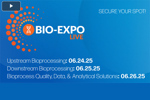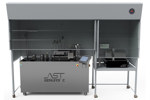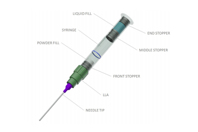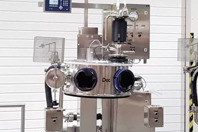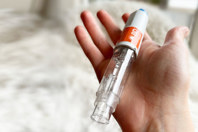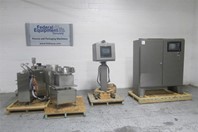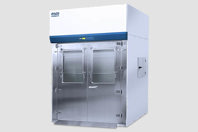INSIGHTS ON LIQUID DOSE MANUFACTURING
-
Solutions In Pre-Filled Syringes For Biologics And Ophthalmic Applications
Discover how pharma companies can select tailored pre-filled syringes for biologics and biosimilars by aligning drug delivery needs with specialized containers and analytical services.
-
Enhancing Aseptic Fill-Finish Processes
Achieve exceptional product recovery and sterility. Learn about high-integrity surge bags, advanced leak detection, and flexible design options for your fill-finish applications.
-
CDMO Uses Robotic Gloveless Isolator For Advanced Therapeutics
CDMOs must innovate production architectures to meet the demands of advanced therapeutics to ensure a reliable supply and compliance. Discover how these approaches advance modern medicine and improve patient outcomes.
-
The Rise In Aseptic Manufacturing Solutions With Smaller Footprints
Aseptic drug manufacturing is going small. Discover how advanced robotic and automated systems with smaller footprints are changing the landscape and boosting accessibility.
-
Re-Engineering A Complex Process For FDA Compliance8/21/2024
Discover the strategies that helped a company navigate a complex and shifting regulatory landscape to rapidly re-engineer a COVID-19 vaccine manufacturing process for FDA compliance.
-
Maintaining Cell Viability During The Cryovial Filling Process4/21/2025
Maintaining cell viability during cryovial filling is a critical challenge in cell therapy manufacturing. This presentation introduces cryoFIL®, a cutting-edge automated cryovial filling platform designed to deliver high-precision, aseptic, and scalable solutions for cryovial filling.
-
Design, Operation, And Automation In Aseptic Filling Systems6/17/2024
Learn about a modular and compact filling and closing system for flexibility in pharmaceutical manufacturing operations and automated processing of vials, syringes, and cartridges.
-
Benefits Of Isolator Technology In Fill-Finish12/10/2025
Isolator technology enhances sterility assurance, reduces contamination risk, improves operator safety, and supports regulatory compliance, making it essential for modern aseptic fill-finish operations.
-
Lifecycle Planning For Containment And Delivery Of Biologics Drug Products6/20/2024
Read more about trends in the biologics market that could impact the lifecycle strategies for your drug product and steps you can take around drug packaging early in development.
LIQUID DOSE MANUFACTURING SOLUTIONS
-
Traditional vials, ampoules, and cartridges are still the most popular delivery systems and the prefilled syringes are still experiencing the greatest growth in the market of any parenteral dosage form. Therefore, to advance the development program appropriately, pharmaceutical R&D scientists should effectively leverage the advantages offered by each form of packaging and dosage.
-
DCS® Liquid was specifically developed for toxic and corrosive liquids, achieving containment levels of < 1 ppb. The safe and contained emptying and filling of drums is thus made possible without additional precautions, such as full protective clothing or large laminar airflow booths.
-
BD Physioject™ Disposable Autoinjector offers a proven, user-friendly platform for self-injection, enhancing patient comfort, safety, and adherence across multiple chronic disease treatments globally.
-
Used Adtech syringe filler, SO# 725, with visual inspection system, capper feeder, Allen-Bradley PLC and interface, built 1989.
-
Achieve ISO Class 5 containment for large-scale research equipment and robotics. These advanced enclosures ensure multi-level protection while maintaining rigorous aseptic standards.


